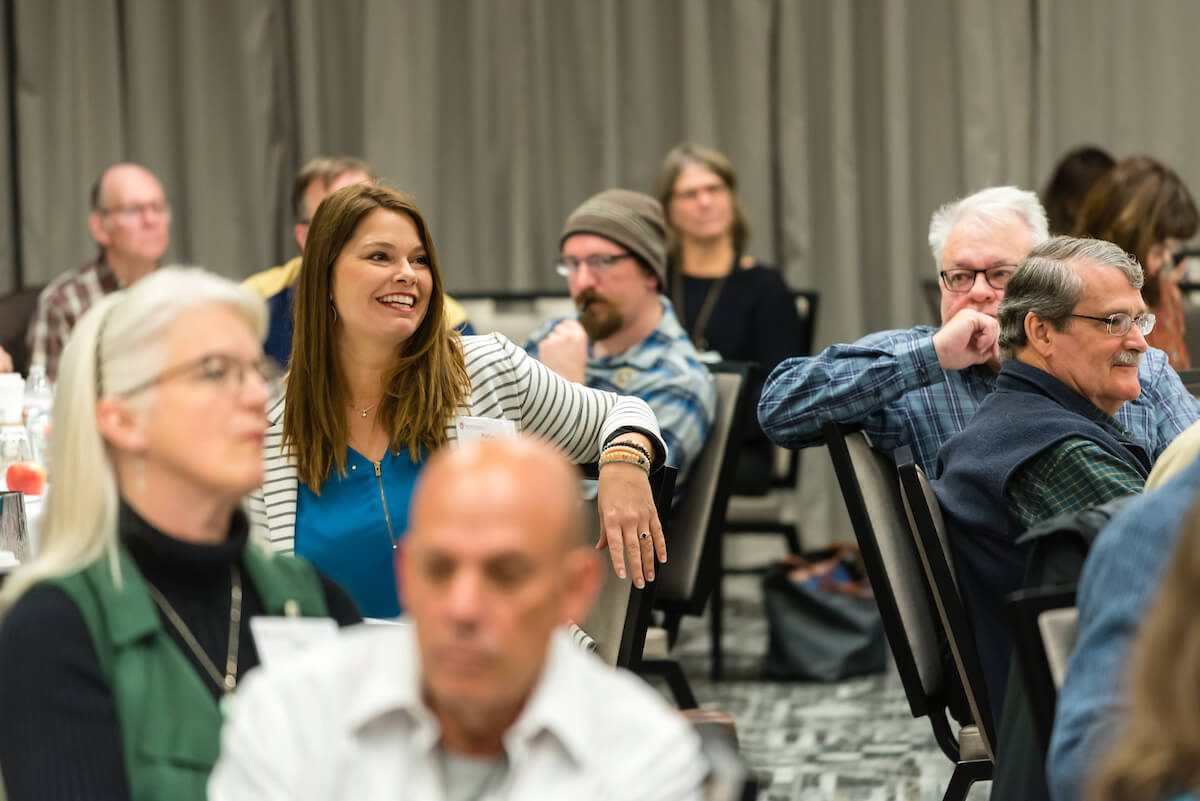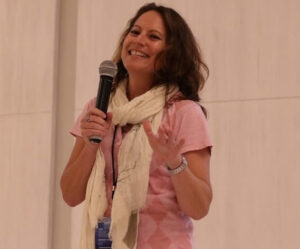
Look at almost any writing conference schedule and you’ll likely find workshops devoted to developing the perfect character, driving a riveting plot or describing an imaginary world — all the stuff of a fiction writer’s dreams.
This year’s University of Wisconsin–Madison Writers’ Institute, March 26-29 in Madison, offers these and many other classes for writers of fiction, but there are also a number of sessions and workshops tailored to nonfiction writers, for good reason.
“In the past few years, we have seen a resurgence in nonfiction writing topics at Writers’ Institute, especially around memoir and social issues,” reports conference director Laurie Scheer. “We’ve made it a point to include sessions designed for nonfiction writers, as well as those that apply to writers of both fiction and nonfiction.”
She says nonfiction writers bring unique qualities and skills to Writers’ Institute, adding, “Nonfiction writers have a great sense of mission about their work. They feel called to write about a particular topic, to reveal truth and to transform lives. The inclusion of nonfiction writers at our conference enriches opportunities for all writers to inspire and learn from one another.”
Writing for the planet
When it comes to writing for a mission, there may be none bigger than protecting our planet. Writers’ Institute instructor Kristine Zeigler will present the master class, Where My Heart Soars and Spirit Sings: Learn About Writing to Save Planet Earth. It’s a topic close to her heart — and to her role as chief development officer at Conservation International.

“Throughout my career in environmental and wildlife conservation, I have probed the questions of how we can protect the only Earth we have,” says Zeigler, who brings cutting-edge knowledge of environmental protection coupled with a 21st-century approach to nature writing.
She sees deep connections between writing and social change. “The works of Harriet Beecher Stowe and Rachel Carson changed the course of history,” she says. “Stories are the way that humans learn, adapt and make change. It’s important that we reckon with the power of the written word and play with it and see what our stories make possible.”
Her class examines how the written word affects the decisions that policymakers, leaders, corporations and schools make every day. “Literature and stories play a very essential part in how we persuade governments and businesses to establish a path to sustainability by protecting nature for the well-being of people everywhere,” she explains.
A class of their own
Other 2020 Writers’ Institute highlights for nonfiction writers include:
- Writing Family Memoirs. Taught by Inside Stories podcast co-host Jen Rubin, this workshop teaches writers techniques for focusing life stories to write a family memoir, including thorny family topics.
- Down the Rabbit Hole: A Writer’s Guide to Research. Terri Karstan, writing coach and published author of both fiction and nonfiction, provides practical suggestions for writing research, along with tips on how to find and use each type.
- Journalism as a Foundation. Midwest Book Award winner and journalist Matt Geiger explores how the journalist’s building blocks for writing and editing can make for more effective writing and a better story.
- How to Make Details Matter in Your Writing. This class examines how well-chosen details can help anchor readers and lend credibility to writing. It’s taught by Christina Clancy, whose essays have appeared in The New York Times, The Sun magazine and the Chicago Tribune.
Now in its 31st year, Writers’ Institute provides practical tips for new, emerging and established writers of fiction and nonfiction. They learn how to polish, publish and promote their work, drawing on the expertise of established authors and writing specialists. They also have the unique opportunity to pitch their manuscripts directly to industry professionals, who attend the conference to find new authors and to help all attendees sharpen their skills.
Online and phone registration for the 2020 Writers’ Institute closes on Tuesday, March 24, at midnight Central Time. You can register in person during the conference at the Madison Concourse Hotel registration desk. For more information contact Laurie Scheer at 608-265-3972 or laurie.scheer@wisc.edu.